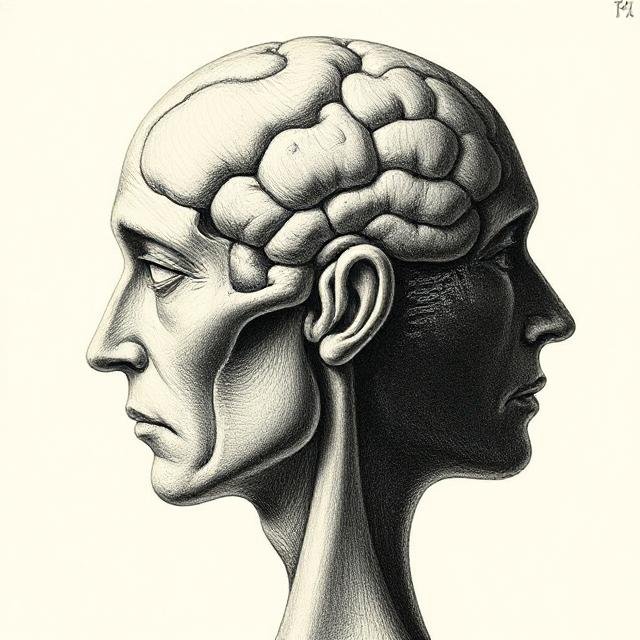Introduction
Antisocial Personality Disorder (ASPD) is a complex and often misunderstood mental health condition that affects an individual’s interactions with others. Characterized by a pervasive disregard for the rights and feelings of others, those with ASPD tend to engage in behaviors that can be manipulative, deceitful, and harmful. Unlike some other personality disorders, ASPD is not a temporary condition or a result of situational stress; it is a long-standing pattern that often emerges in adolescence or early adulthood.
In this article, we will explore the various aspects of ASPD, including its symptoms, causes, and treatment options, providing an in-depth look at how this disorder impacts both the individual and those around them.
What is Antisocial Personality Disorder (ASPD)?
Antisocial Personality Disorder (ASPD) is a mental health disorder that is primarily defined by persistent patterns of behavior that show a lack of regard for the rights, feelings, and safety of others. Individuals with ASPD may frequently engage in actions that violate social norms, rules, and laws. This behavior is typically rooted in the individual’s personality, making it difficult for them to feel empathy or remorse for their actions.
ASPD is often used interchangeably with the term “sociopathy,” although some mental health professionals prefer to reserve “sociopathy” for cases where individuals exhibit a more impulsive and erratic behavior, as opposed to the more calculated tendencies seen in those diagnosed with ASPD.
It’s crucial to understand that not everyone with ASPD engages in criminal activities, though a significant number may show tendencies towards crime. The disorder can manifest in various ways, including manipulative behavior, aggression, and a lack of accountability for one’s actions.
Key Symptoms of ASPD
The hallmark symptoms of Antisocial Personality Disorder are often present from adolescence or early adulthood and typically include the following behaviors:
- Chronic disregard for others’ rights: Individuals with ASPD often violate the rights of others without any remorse, frequently engaging in actions like stealing, lying, and deceiving.
- Lack of empathy: Those affected by ASPD may have an inability to feel guilt or remorse for causing harm to others, often seeing their actions as justified.
- Manipulative behavior: These individuals are often skilled at manipulating others to meet their own needs or desires, using charm or deceit to control situations.
- Aggression and irritability: ASPD is frequently associated with irritability and aggression, leading to hostile interactions with others.
- Irresponsibility and impulsivity: People with ASPD often have difficulty maintaining long-term commitments, whether in their careers or relationships. They may act impulsively without considering the consequences.
- Reckless behavior: Engaging in dangerous activities without regard for personal safety or the safety of others is a common symptom.
Causes and Risk Factors
The exact causes of Antisocial Personality Disorder remain unclear, but a combination of genetic, environmental, and neurological factors are thought to play a role. Several risk factors have been identified, including:
- Genetic predisposition: There is evidence to suggest that ASPD may run in families, indicating a potential genetic component. People with a family history of personality disorders, especially those with criminal behavior, may be at greater risk.
- Early childhood trauma: Many individuals with ASPD have a history of abuse, neglect, or unstable family environments during childhood. These experiences can influence the development of personality traits that lead to ASPD.
- Neurobiological factors: Some research suggests that abnormalities in brain structure, particularly in areas that regulate emotions and decision-making, may contribute to the development of ASPD.
- Social and environmental factors: Growing up in environments that model antisocial behavior, such as poverty, gang involvement, or exposure to violence, can increase the likelihood of developing ASPD.
Diagnosis of ASPD
Diagnosing Antisocial Personality Disorder typically involves a thorough assessment by a mental health professional, including a clinical interview and standardized diagnostic tests. According to the Diagnostic and Statistical Manual of Mental Disorders (DSM-5), a diagnosis of ASPD is made if an individual exhibits a pattern of behavior that includes at least three of the following criteria:
- Repeated violation of laws or rules
- Deceitfulness (e.g., lying, using aliases)
- Impulsivity or failure to plan ahead
- Irritability or aggressiveness
- Reckless disregard for the safety of oneself or others
- Consistent irresponsibility (e.g., failure to sustain work or meet financial obligations)
- Lack of remorse for actions
A diagnosis is typically made in adulthood, though the behavior often begins in childhood or adolescence, with symptoms becoming more prominent by the age of 18.
Treatment and Management
While there is no cure for Antisocial Personality Disorder, there are several ways to manage the condition. Treatment is most effective when started early, and it often involves a combination of psychotherapy and, in some cases, medication.
- Psychotherapy: Cognitive-behavioral therapy (CBT) is one of the most commonly recommended forms of therapy for individuals with ASPD. CBT aims to help individuals recognize and change harmful thinking patterns and behaviors. Group therapy can also be useful, as it provides a supportive environment where individuals can learn about the consequences of their actions on others.
- Medication: Though no medications are specifically designed to treat ASPD, individuals with the disorder may benefit from medications that help manage symptoms such as irritability, impulsivity, or anxiety. Antidepressants and mood stabilizers are commonly prescribed.
- Support groups: Joining a support group with others who are dealing with similar issues can provide individuals with ASPD a sense of community and reduce feelings of isolation.
- Family therapy: In cases where ASPD affects relationships within a family, family therapy can help loved ones understand the disorder and learn how to cope with the challenges it presents.
Living with ASPD
Living with ASPD can be challenging for both the individual and those around them. People with ASPD may struggle with maintaining relationships, keeping jobs, and functioning in society due to their tendency to act impulsively and disregard the feelings of others. Without proper treatment, individuals with the disorder may experience ongoing issues related to legal problems, substance abuse, and mental health conditions.
However, with the right therapeutic interventions, many individuals with ASPD can improve their functioning, learn healthier coping mechanisms, and develop more positive relationships.













